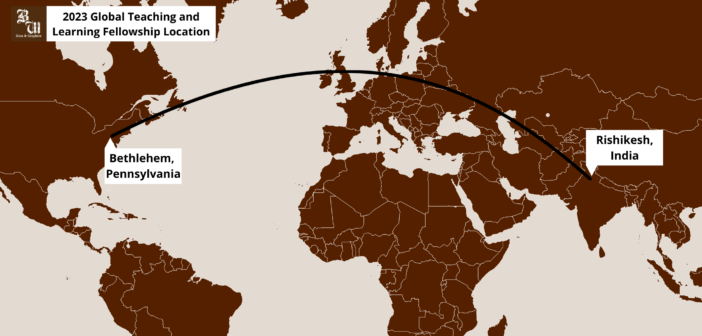The Global Citizenship Center for Pedagogies of Self, Other and World Well-being named seven Lehigh faculty members across disciplines to the first cohort of Global Teaching and Learning Fellows.
The program allows faculty to learn about other cultures, histories and locations by traveling abroad, and then bring that knowledge back to Lehigh.
According to the Office of International Affairs website, the fellowship is designed to help faculty create innovative international educational experiences in the classroom regardless of the subjects they teach.
The goal of the program, according to the website, is to expand in the next five years and involve about 40 cross-disciplinary faculty members to help future culturally diversify Lehigh.
This first cohort will travel to India for a seminar to further stimulate critical thinking, research and learning.
Angelina Rodriguez, director of the Global Citizenship program, said she will guide faculty members through questions surrounding what it means to engage in learning abroad in challenging times.
Faculty will consider the vulnerabilities and positionalities of people involved in their work, Rodriguez said, all in service of creating global learning experiences for their students, whether abroad or in local communities.
“Our main organizing question is: How do we show up as educators in places not necessarily home to us with students both like and unlike us, as well as local residents — all of us with our own fears and desires — to create meaningful engagements that positively shape our shared future?” Rodriguez said.
William Crow, art, architecture and design professor and director of Lehigh University Art Galleries (LUAG), has been teaching fellows how to engage with art in relation to teaching.
Crow said one of the reasons the first cohort is traveling to the Himalayas is because the LUAG has an exhibit called “Gateway to Himalayan Art.” Faculty will be able to incorporate the art available at Lehigh into their teaching.
“Many of the works of art in this exhibition are intended to be teaching objects,” Crow said. “They tell us stories about the life of the historical Buddha, and they tell us about teachings and living practices of that culture and region.”
Crow said the cohort has already met once, and he has enjoyed getting more involved with the faculty members chosen for the program.
International relations professor Mary Anne Madeira said she is most excited to learn from her colleagues outside of the classroom and try new teaching methods.
“I want to learn how to integrate art and humanities into my teaching,” Madeira said. “Art can be so powerful in helping us see connections between ourselves and other people. My specific goal is to just broaden my toolkit of teaching approaches.”
Rochelle Frounfelker, community and population health professor, said one of her biggest draws to the fellowship is that she can connect it to her research on mental health disparities in resettled refugee populations.
Frounfelker said she wants to use art as a teaching tool to help her students engage in compassionate yet critical exchanges with people who have differing beliefs.
“This could be a seminar that provides me with really concrete ideas and skills to apply my goals to lesson plans and curricula that I have right now and I’m looking to develop in the future,” Frounfelker said.
Psychology professor Almut Hupbach said she is looking forward to bringing a global perspective into her teaching to create a unique curriculum for her students.
Hupbach said she wants to approach typical lecture-heavy classes, like neuroscience, through a new perspective by incorporating new ways of thinking and engagement through art and humanities.
“This fellowship will allow me to develop those components in a more targeted way with others from different departments and different backgrounds,” Hupbach said.
Terry-Ann Jones, deputy provost for Undergraduate Education, said she wants to improve the educational experience for all students.
Jones said she hopes the seminar will provide her and the other fellows with tools to teach from a broader cross-disciplinary perspective.
“I’m just hoping to get different perspectives on education and hoping to have an experience that will help me to think broadly and creatively about educating students,” Jones said.






Comment policy
Comments posted to The Brown and White website are reviewed by a moderator before being approved. Incendiary speech or harassing language, including comments targeted at individuals, may be deemed unacceptable and not published. Spam and other soliciting will also be declined.
The Brown and White also reserves the right to not publish entirely anonymous comments.